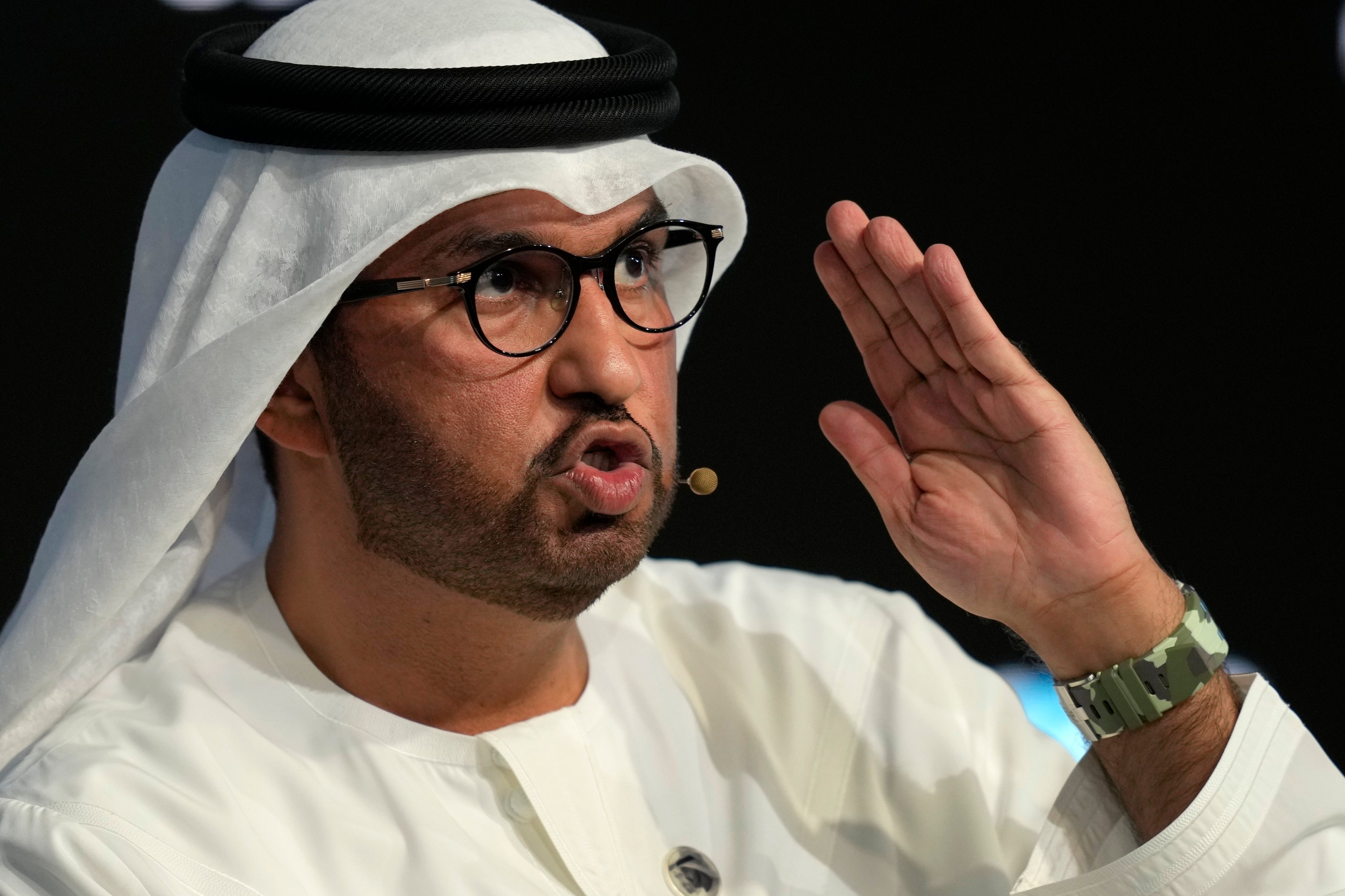Developed nations pledge $9.3 billion to global climate fund at gathering in Germany
The German government says developed countries have pledged $9.3 billion to help poor nations tackle climate change

Your support helps us to tell the story
From reproductive rights to climate change to Big Tech, The Independent is on the ground when the story is developing. Whether it's investigating the financials of Elon Musk's pro-Trump PAC or producing our latest documentary, 'The A Word', which shines a light on the American women fighting for reproductive rights, we know how important it is to parse out the facts from the messaging.
At such a critical moment in US history, we need reporters on the ground. Your donation allows us to keep sending journalists to speak to both sides of the story.
The Independent is trusted by Americans across the entire political spectrum. And unlike many other quality news outlets, we choose not to lock Americans out of our reporting and analysis with paywalls. We believe quality journalism should be available to everyone, paid for by those who can afford it.
Your support makes all the difference.Developed countries pledged $9.3 billion to help poor nations tackle climate change at a conference held in the German city of Bonn on Thursday, authorities said. However, nongovernmental groups criticized the outcome, saying the funds fall short of what is needed to tackle climate change.
The pledges will help replenish the South Korea-based Green Climate Fund, established in 2010 as a financing vehicle for developing countries. It’s the largest such fund aimed at providing money to help poorer nations in reducing their emissions, coping with impacts of climate change and boosting their transitions to clean energy.
The pledged money at the conference in Bonn will be used to finance projects in developing and emerging nations between 2024 and 2027. The German government alone pledged 2 billion euros ($2.1 billion).
Twenty-five countries came forward with fresh pledges while five said that they would announce theirs in the near future.
“The collected sum will likely turn out to be much higher,” the German Foreign Ministry and the German Ministry for Economic Cooperation and Development said in a joint statement.
Three quarters of contributing states increased their pledges, compared to the previous donor conference in 2019, including Germany, Austria and France. Denmark, Ireland and Liechtenstein doubled their pledges.
There was no mention of pledges from the United States. The office of the U.S. climate envoy John Kerry was not immediately available for comment.
However, civil society and NGOs criticized the commitments, saying they fall short of what is needed to tackle the impact of climate change on vulnerable communities in developing nations.
“The Green Climate Fund, envisioned as the lifeline for climate action in developing nations, is held back by the indifference of wealthy countries,” said Harjeet Singh, Head of Global Political Strategy of the Climate Action Network International, a global network of over 1900 environmental civil society organizations in over 130 countries.
“The silence of the United States ... is glaring and inexcusable,” Singh said.
“Developed countries are still not doing their part to help developing countries and affected people and communities with urgent climate actions,” said Liane Schalatek, associate director at the Heinrich Böll Foundation in Washington.
The issue of financial support to poorer nations will play a major role during the upcoming U.N. Climate Change Conference, COP28, starting in Dubai at the end of November.
Sultan Al Jaber, president designate of COP28, told The Associated Press in a statement that “the current level of replenishment is neither ambitious nor adequate to meet the challenge the world faces.”
“We must go further in our support for the most vulnerable, who are adversely impacted by escalating climate impacts,” he said.
German Minister for Economic Development Svenja Schulze, who hosted the Bonn conference, called on more nations to contribute their “fair share” to the financial effort.
“Besides the other industrialized nations, I increasingly see also the responsibility of countries who are not part of the classical donors: for example, Gulf states that got rich due to fossil energy, or emerging nations such as China who by now are responsible for a large share of carbon emission,” said Schulze.
Representatives from 40 countries attended the conference.
___
Associated Press writers Dana Beltaji in London and Seth Borenstein in Washington contributed to this report.
___
Read more of AP’s climate coverage at http://www.apnews.com/Climate